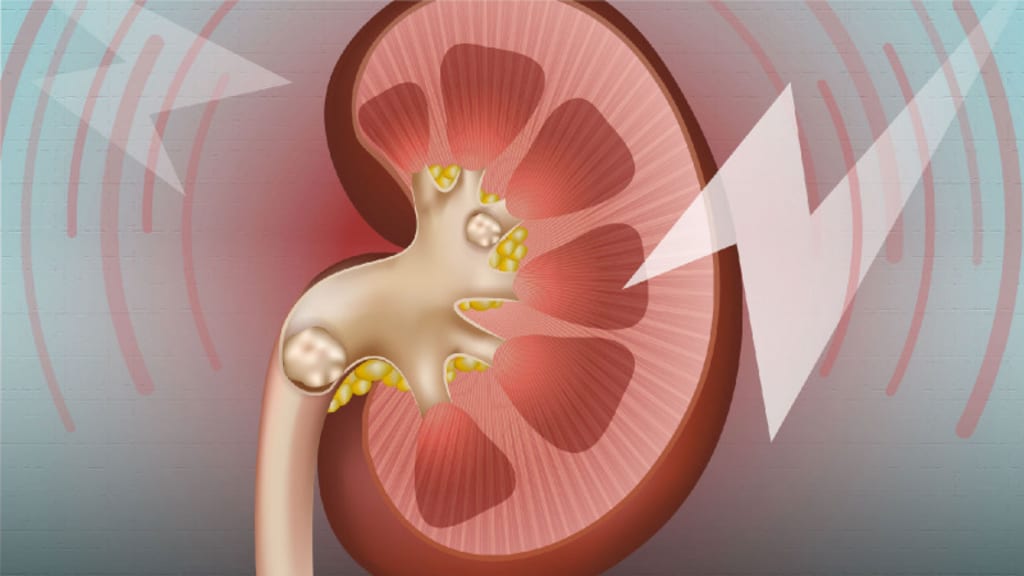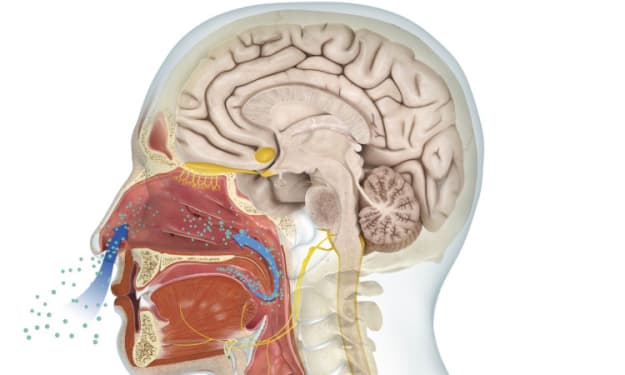Content warning
This story may contain sensitive material or discuss topics that some readers may find distressing. Reader discretion is advised. The views and opinions expressed in this story are those of the author and do not necessarily reflect the official policy or position of Vocal.
KIDNEY STONE PREVENTION DIETARY CHOICES FOR OPTIMAL KIDNEY HEALTH
ALL YOU NEED TO KNOW

Kidneys are vital organs in the human body that filter waste and excess fluids from the blood, produce urine and maintain essential electrolyte balance. They are crucial in regulating blood pressure and red blood cell production.
Kidney stones, or nephrolithiasis, form when there is an accumulation of minerals and salts in the kidneys. Various factors, including genetics, diet, and dehydration, contribute to their formation. When the concentration of these substances in urine becomes too high, crystals develop and gradually aggregate into stones. These stones can vary in size and may cause excruciating pain as they move through the urinary tract. Treatment options range from increased hydration and medications to more invasive procedures, depending on the stone’s size and location.
Kidney stone prevention involves home remedies as well as medical steps. If the condition is serious and requires a surgical procedure, a doctor may use sound wave therapy, parathyroid gland therapy, or a scope to remove the stones. Lifestyle changes also play a vital role in forming and eliminating kidney stones. Diet forms a huge chunk in removing a stone from the kidney.
Causes and Symptoms of Kidney Stones
Mentioned below are the causes and symptoms of the formation of stones in the kidney and obstructing the functioning of the organ:
Causes
High level of crystallising substances in urine
Family history of the disease
Dehydration
Obesity
Supplements and Medications
Symptoms
Severe pain in the back and sides
Pain in the lower abdomen and groin region
Pain and burning sensation while urinating
Nausea and vomiting
Cloudy and foul-smelling urine
Lifestyle Changes to Avoid Kidney Stones Visual Representation of Kidney Stones
Lifestyle Changes to Avoid Kidney Stones
High Water Intake– One of the prime suggestions doctors give for easily passing a stone is high water intake. The water helps to avoid dehydration, which is the main cause of kidney stones. Doctors advise that adequate water intake of 2 litres of water should be consumed to pass the stone. People living in areas with high temperatures or intense workouts should drink more water to maintain the water level for proper urination.
Lemon Juice– Consumption of lemon juice is another beneficial tip to help break kidney stones. Citrate in lemon helps prevent calcium stones from leading to the formation of kidney stones. The consumption of lemon in various forms is an advisable option.
Exercising– One of the major reasons in the list of causes of kidney stones involves obesity. An obese individual is also at a higher risk of experiencing kidney stones. Exercising with a proper diet helps to maintain an ideal body weight to avoid kidney stones. Working out also helps to avoid various other harmful health issues such as diabetes, heart issues, respiratory problems, and multiple other health conditions.
Dietary Choices for Optimal Kidney Health
Diet plays a crucial role in the formation and elimination of kidney stones from the kidney as mentioned above. A proper and balanced kidney stones diet helps form calcium and minerals that stick together and form stones if taken in higher form.
Mentioned below are some of the foods that help eliminate and remove stones from the urinary tract:
Basil– Basil has been proven to protect kidneys from Diabetic Nephropathy in rats. Its oxidation properties can also be replicated for humans, and this is a matter of research.
Apple Cider Vinegar– Apple Cider Vinegar, also known as ACV, has been found to induce protection from Carbon Tetrachloride induced oxidative damage in the kidneys of rats. ACV can provide some level of protection to humans as well.
Limit Foods with Calcium Oxalate– Calcium oxalate is a common form of stones found in the kidney. Food items such as spinach, nuts and seeds, grains, legumes, and chocolates should be avoided. It is also advised to lower salt intake for people with kidney stones as high sodium in salt increases calcium.
Balanced Diet- Consume a balanced diet rich in fruits, vegetables, whole grains, and lean proteins. Avoid excessive consumption of processed foods, sodium, and sugar.
Limit Salt Intake- Reduce salt (sodium) intake to help manage blood pressure and prevent fluid. retention. Aim for less than 2,300 mg of sodium per day.
Control Protein- Maintain moderate protein intake. High-protein diets can strain the kidneys, so balance protein sources with plant-based options such as legumes.
Monitor Phosphorus and Potassium- If you have kidney disease, monitor phosphorus and potassium intake. High levels can be harmful. Limit foods high in these minerals, such as dairy and bananas.
Limit Saturated and Trans Fats- These fats can contribute to heart disease, a risk to kidney health. Opt for healthier fats found in nuts, seeds, and fatty fish.
Manage Sugar- High sugar intake can increase the risk of kidney disease. Control sugar consumption, especially sugary drinks and snacks.
About the Creator
Enjoyed the story? Support the Creator.
Subscribe for free to receive all their stories in your feed. You could also pledge your support or give them a one-off tip, letting them know you appreciate their work.





Comments
There are no comments for this story
Be the first to respond and start the conversation.